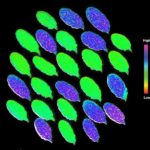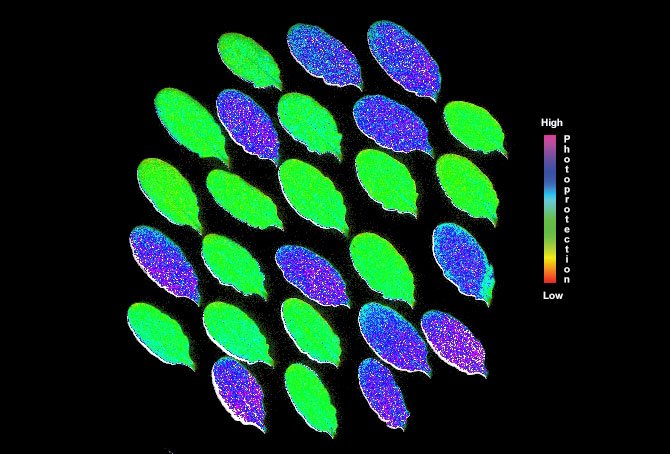 Excess light energy that a plant can’t absorb needs to be dissipated to avoid damage and oxidative stress. Krishna Niyogi, a faculty scientist in Molecular Biophysics and Integrative Bioimaging and a UC Berkeley professor of plant and microbial biology, led the study that included researchers from Berkeley Lab, UC Berkeley, University of Pennsylvania School of Veterinary Medicine and Colorado State University at Fort Collins. The scientists are studying ways to increase the amount of light that can be safely absorbed, potentially leading to more efficient photosynthesis and higher crop productivity. Read the Berkeley Lab Science Short.
Excess light energy that a plant can’t absorb needs to be dissipated to avoid damage and oxidative stress. Krishna Niyogi, a faculty scientist in Molecular Biophysics and Integrative Bioimaging and a UC Berkeley professor of plant and microbial biology, led the study that included researchers from Berkeley Lab, UC Berkeley, University of Pennsylvania School of Veterinary Medicine and Colorado State University at Fort Collins. The scientists are studying ways to increase the amount of light that can be safely absorbed, potentially leading to more efficient photosynthesis and higher crop productivity. Read the Berkeley Lab Science Short.




